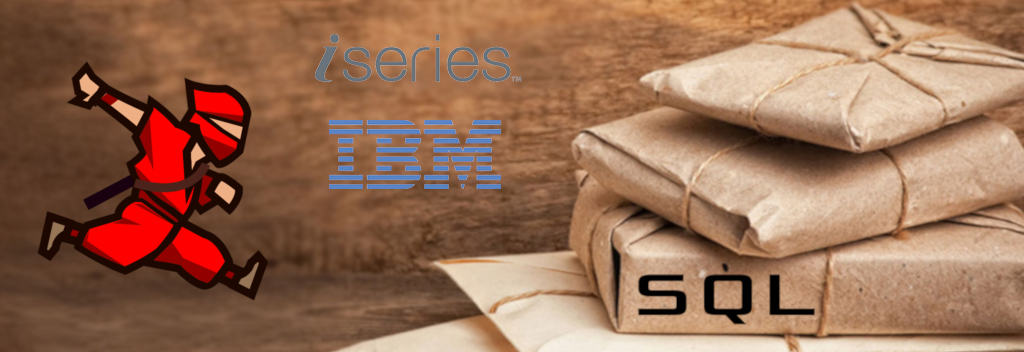
IBM iSeries SQL Packages FAQ
Read Time:1 Min, 32 Sec
 If you use an IBM iSeries, AS/400, System i, just i or whatever IBM is calling their powerhouse processing server nowadays, SQL Packages seem to be the price you pay for speed.
If you use an IBM iSeries, AS/400, System i, just i or whatever IBM is calling their powerhouse processing server nowadays, SQL Packages seem to be the price you pay for speed.
Go to the IBM Support page SQL Package Questions and Answers to get answers to the following:
- What are SQL packages?
- When do SQL packages get created?
- How are SQL packages named?
- What library does the SQL package go into? Is there a preferred library for SQL packages?
- What are the advantages of using SQL packages?
- Do all prepared statements go into an SQL package?
- How can I tell what statements are in an SQL package?
- Can the same statement appear multiple times in the same SQL package?
- How can I determine if the SQL package is being used?
- What data is stored in an SQL package?
- How big is an SQL package?
- Are there any negative performance considerations for using large packages?
- What happens when SQL packages get full?
- Are there other times when an SQL package can become unusable?
- When should I delete SQL packages?
- How do I delete SQL packages? – DLTSQLPKG
- How do I restore the IBM-supplied packages?
- Why can’t I delete a package with a name of _CSETUP (or other nonstandard system object names)?
- What are the QSQLPKG2 and QSQXDPKG packages in QSYS for? Can they be deleted?
- What are the “best practices” for using packages?
Like I said, SQL Packages are great but not managing them can really cause issues. The truest statement on that page is “the time it takes to debug a problem due to incorrect information in a package can be costly.” Usually, you don’t know it is an SQL Package issue until you have put hours into troubleshooting because deleting them is usually the last resort.
Have any tips for dealing with SQL Packages?



This is a very poorly written article. You don’t give the reader any solutions but rather point them to IBM’s pages which they can get to via any decent Google search. I think the primary goal of this writing is to criticize JDE running on the IBM i platform. My personal experience is that JDE doesn’t run the fastest on the IBM i platform, but from a manageability standpoint, and CNC Resources needed, IBM i is the best platform for ease of use, management, and requires the least amount of technical resources.
Companies who want to get the best ROI, should use JDE on IBM i. If you need raw speed and are not concerned on how many people you pay to manage application, you can choose a vast array of more complex configurations.
Interesting take on this post. Granted, I could have copy & pasted the info from the IBM site, but I really don’t think there is much integrity in that. Like most of my posts, it was a quick pointer to more information. If you follow any of my writing, you would know that I respect the IBM i platform a lot. The stability seems to be unmatched when compared to my experiences with the other platforms (Linux & Windows). You gotta admit, the SQL Package thing can really be a pain in the butt!